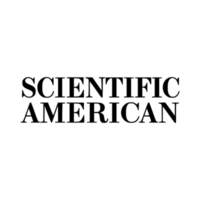
In the latest edition of Scientific American online, Dr. Gina Siddiqui, an emergency room doctor at Yale New Haven Hospital, discusses why physicians have incorrectly feared that new technology would make their jobs obsolete.
She describes how thermometry was part of a seismic shift in the nineteenth century, along with blood tests, microscopy, and eventually the x-ray, to what we now know as modern medicine. Half of doctors thought it weighed them down and wanted nothing to do with it. The other half celebrated it as a means for medicine to finally become modern, objective, and scientific.
According to Dr. Siddiqui, the same debate about technology replacing doctors rages on today. Patients want not just the doctor’s opinion, but everything from their microbiome array and MRI to tests for their testosterone and B12 levels.
Some doctors celebrate this millimeter and microliter resolution inside patients’ bodies, Dr. Siddiqui said. They proudly brandish their arsenal of tests and say technology has made medicine the best it’s ever been.
The other camp resents all these tests because they miss things that listening to and touching the patient would catch, she added. They insist there is more to health and disease than what quantitative testing shows, and try to limit the tests that are ordered. “But even if a practiced touch detects things tools miss, it is hard to deny that tools also detect things we would miss that we don’t want to.”
Dr. Siddiquisaid modern CT scans, for example, perform better than even the best surgeons’ palpation of a painful abdomen in detecting appendicitis. As CT scans become cheaper, faster, and dose less radiation, they will become even more accurate and useful. The same will happen with genome sequences and other up-and-coming tests that detect what overwhelms our human senses, she added.
“What’s keeping some doctors from celebrating this miraculous era of medicine is the nagging concern that we have nothing to do with its triumphs,” she said.
The entire article can be accessed here.






